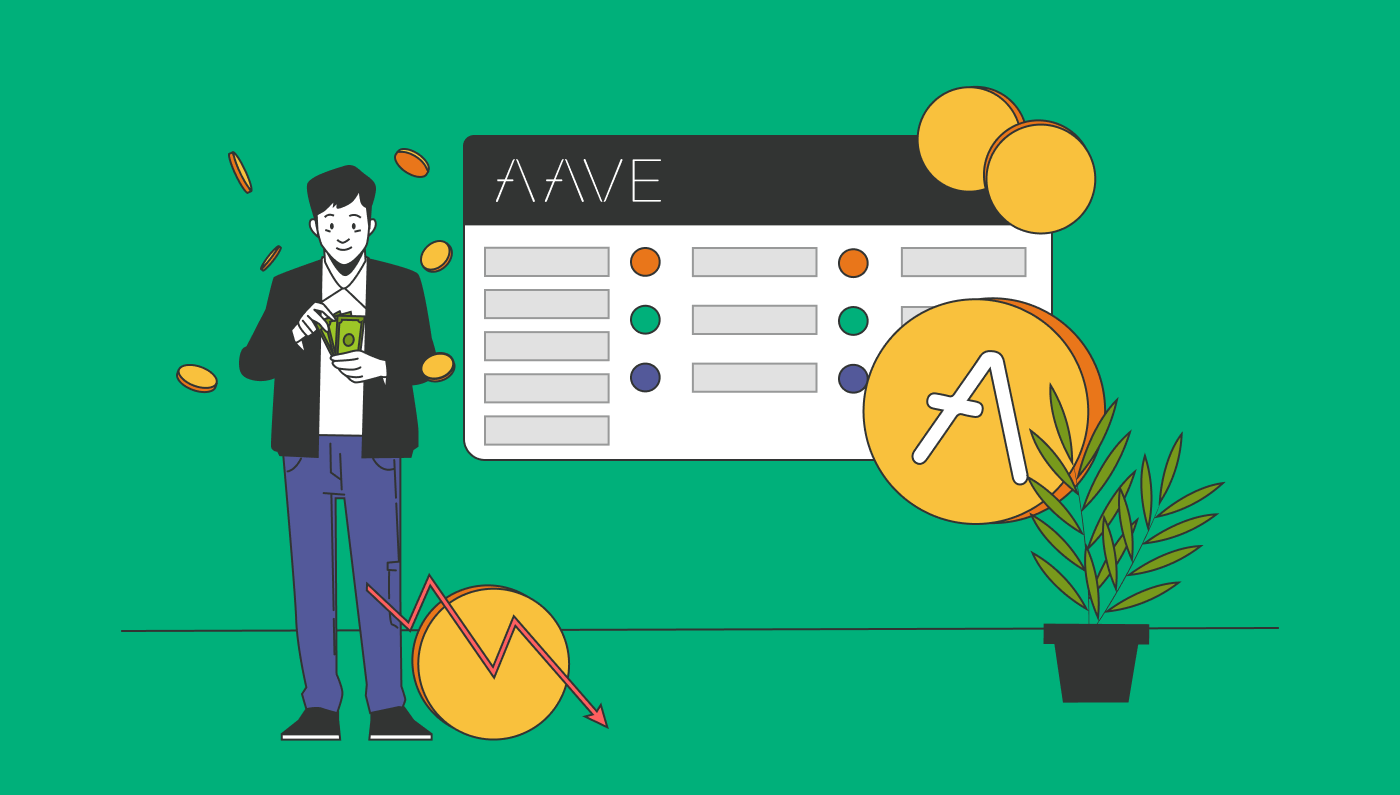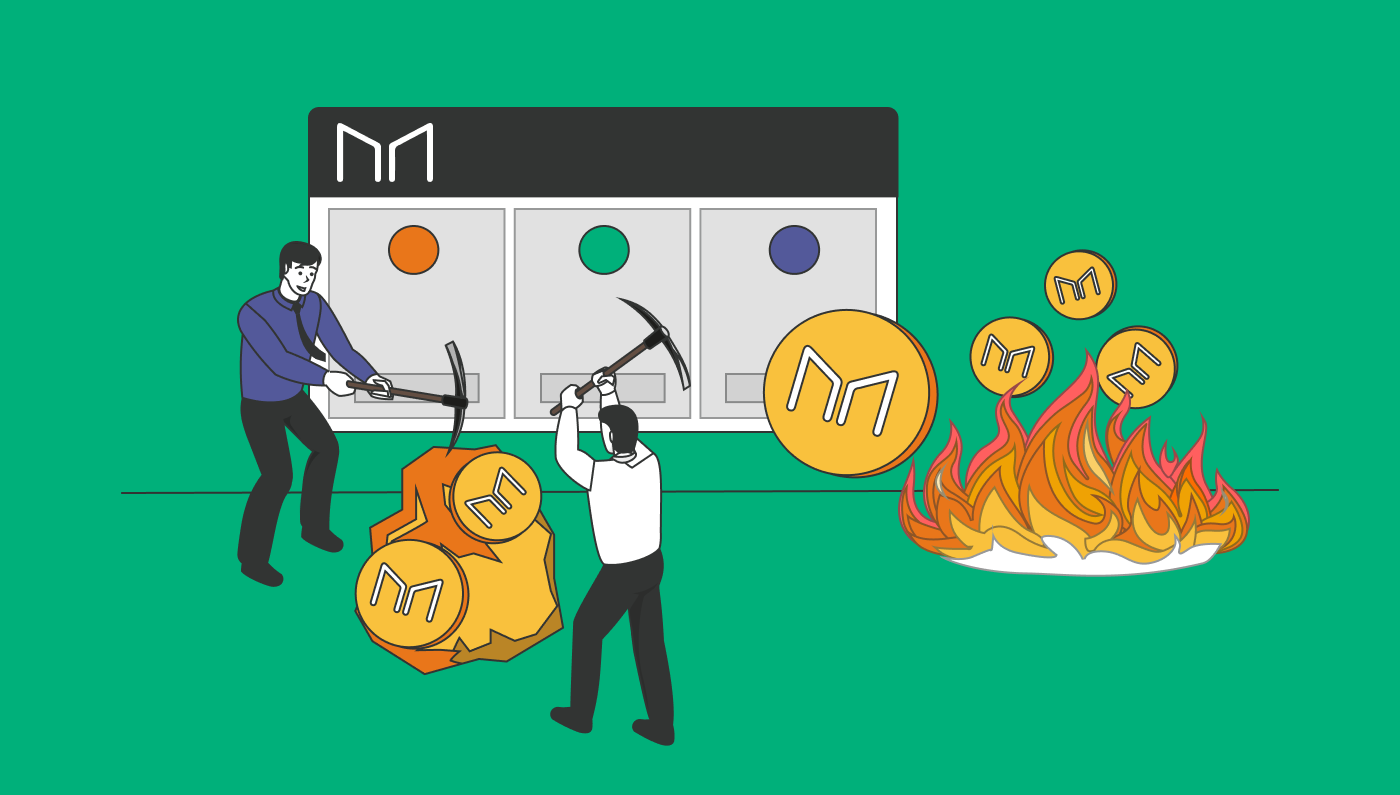Decentralized Autonomous Organizations (DAOs) Explained
Of all the recent trends from Web 3.0 to the metaverse, and NFTs, among the most popular is the emergence of decentralized autonomous organizations (DAOs).
What Is a DAO?

A decentralized autonomous organization is a digital community that functions similarly to a mutual fund, except that the investments are managed collectively by all participants, as opposed to being handled by a fund manager. Run on a public blockchain, with the rules encoded in smart contracts, DAOs are trustless organizations that enable anyone to monitor and confirm the financial transactions being executed, and vote on the future direction of the organization.
Let’s examine some of the most prominent decentralized autonomous organizations and see how they function, in order to gain a more in-depth understanding of DAOs.
Compound

Possibly one of the biggest names in DAOs is Compound, a DeFi lending protocol with the governance token COMP. Compound enables members of the community to deposit funds and receive interest on their cryptocurrency in return for providing liquidity, as well as allowing members to borrow funds, providing collateral in return for securing a loan. Members earn COMP through lending and borrowing on the platform. By locking a minimum number of COMP tokens in a specific address, members will be eligible to generate proposals, relating to governance of the organization, on which other members can vote. This includes parameters such as interest rate models, adding and removing markets, establishing asset collateral and more.
A proposal will only be considered for voting if the address is delegated a set number of tokens, after which a voting process gets underway. If enough positive votes are received then the proposal will be implemented.
AAVE

A very popular decentralized autonomous organization is Aave. Members of the DAO can lend funds by contributing to liquidity pools or borrow funds by providing collateral and taking a flash loan from the liquidity pool. The AAVE governance token provides beneficial terms, such as lower fees, as well as providing the token holder with voting power over the future development of the protocol.
MakerDAO

Another major decentralized autonomous organization is MakerDAO, with the governance token Maker (MKR). Proposing a change to the protocol requires the DAO member to hold MKR or have it delegated to them, before a voting contract is created in which MKR tokens are locked .MKR is either minted or burned based on MakerDAO’s debt level. In a scenario where the number of available tokens is insufficient, and the protocol is unable to cover its debts, new tokens will be minted, whereas a surfeit of tokens will mean tokens are burned.
It should be noted, that MakerDAO is not to be confused with the Maker Protocol software platform for the issuance and management of the DAI stablecoin.
Decred

The Decred DAO is a blockchain that works by using a decentralized hybrid consensus model. To be eligible to vote either on-chain or off-chain, users need to time-lock their DCR governance tokens in order to be able to purchase tickets. When voting on-chain, tickets are used to review newly mined blocks and if a majority of tickets vote for validating the block it is confirmed. As soon as the voting is finished the governance token is unlocked and the user has their DCR returned to them, along with a reward. Off-chain votes are cast via the Politeia platform, and these votes relate to issues such as policy changes, or use of treasury funds.
Uniswap

One more well-regarded DAO is Uniswap, an automated market maker (AMM), which is a decentralized trading protocol on the Ethereum blockchain. The governance token, UNI, enables the holder to vote on various aspects of protocol management from the community treasury and the fee switch to the default list and the distribution of SOCKS liquidity tokens.
The Benefits of DAOs

One of the primary advantages of a DAO is that they are democratic, hearing everyone’s opinions on the best direction for the protocol to take. In fact, control over policy direction and the allocation of funds is completely in the hands of the organization’s members.
Moreover, decentralized autonomous organizations are demonstrably honest. Run on public blockchains, DAO member votes can be tracked, and members can see with absolute certainty that the majority-vote decision is executed.
In addition to the transparency of the setup, the decentralized governance structure is cost-effective and low-effort. Unlike centralized organizations there is no managerial staff to pay a salary and the automated systems are fast and efficient.
The Disadvantages of DAOs

One major concern about decentralized automated organization is the issue of security. For example, in 2016, the first ever DAO was hacked. A hole was exploited in a smart contract that enabled millions of dollars worth of ETH to be stolen, and this event ultimately led to the Ethereum hard fork.
It’s also worth noting that in a crisis situation, such as a hack, or a coding error creating a security breach, a consensus is required over what action to take. However, voting remains lengthy process and could waste precious time when a rapid response is required
Another issue is the DAO power hierarchy. Since voting power is gained through the accumulation of governance tokens, this can end up giving a powerful few, excessive influence the direction of the protocol if they have more tokens.
Possibly the biggest drawback to joining a decentralized autonomous organization is the lack of clarity regarding legal issues, which have yet to be formalized. For a start, members of the organization are spread around the world, so jurisdiction issues relating to taxation or legal disputes could become very complex. This is all compounded by the anonymity of decentralized protocols. DAO regulatory compliance requirements remain unclear, and the lack of definitive legal guidance creates investor uncertainty.
ArbiSmart(RBIS): All the Advantages of a DAO None of the Drawbacks

Here at ArbiSmart, we offer the best of all worlds.
DAOs are decentralized organizations that place financial control firmly in the hands of community members, providing exceptional revenue generation opportunities and cost-effective transactions without intermediaries. While ArbiSmart is not a decentralized autonomous organization it has all the most advantageous features of a DAO.
For starters, the ArbiSmart project, while centralized, offers voting power for those who hold the RBIS token, enabling the members of the community to collectively determine the future direction of the project.
Critically, as a fully EU authorized platform, AribSmart offers powerful protections are not susceptible to the hacks and exploitation to which a DAO is vulnerable.
DAOs are a very recent trend, and their long-term viability is still very much up in the air. Here at ArbiSmart however, we have a proven business model that has successfully generated reliable revenues for platform users for the last three years.
At ArbiSmart, we offer a wide variety of high-yield passive profit opportunities, such as our automated crypto arbitrage platform that generates returns of up to 45% a year. This quarter, we are stepping up the pace with a series of new RBIS utilities starting later this month with a digital wallet for FIAT and crypto that generates interest of up to 147% on RBIS and up to 49% a year on all other supported currencies. We will also be introducing a mobile app to enable users to buy, store and exchange crypto as well as deposit or withdraw funds. Later this quarter we are launching an NFT marketplace, as well as a collection of thousands of unique digits items.
Next month, we will also be introducing decentralized yield farming program, offered via Uniswap, with a user-friendly interface enabling direct interaction with the program through the ArbiSmart platform. This allows users to benefit from the best of blockchain technology via our regulated, centralized systems, by staking capital for up to 190,000% APY and 0.3% of the fees on every trade, withdrawing funds at any time.
Not only will all these new RBIS utilities drive demand for the token and push up the RBIS price significantly, but they provide exceptional diversity and liquidity. Users can benefit from an interconnected ecosystem offering a range of crypto financial services, enjoying rewards use of one service when joining another, such as a higher APY in the decentralized yield farming program for anyone holding an ArbiSmart NFT.
To learn more about all of the latest crypto trends from gaming and the metaverse to NFT’s and the evolution of DeFi, check out the ArbiSmart blog. To accumulate RBIS before the price shoots up, buy now.